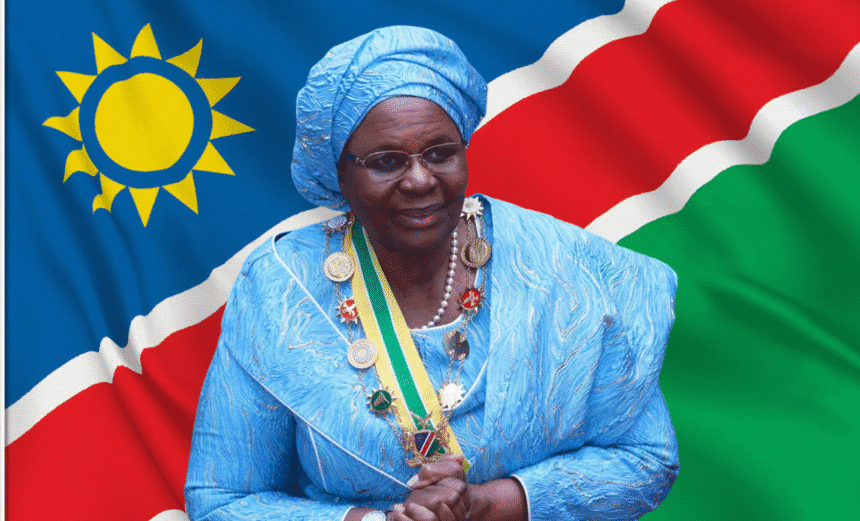On March 21, 2025, Namibia made global history by becoming the first country in Africa and one of the first in the world to have women occupying its three most powerful political positions: President, Vice President, and Speaker of the National Assembly. The event coincided with the nation’s 35th Independence Day, marking a symbolic new chapter for gender equality and political leadership on the continent. Netumbo Nandi-Ndaitwah was sworn in as Namibia’s first female President, with Lucia Witbooi as Vice President and Saara Kuugongelwa-Amadhila as Speaker of the National Assembly. Their inauguration marked the culmination of decades of gradual but determined progress toward women’s political representation in Namibia.
The inauguration ceremony, originally scheduled to take place at the Independence Stadium in Windhoek, was moved indoors to the State House due to heavy rains. Yet, the mood among citizens was one of joy and national pride. The ruling SWAPO Party, which has governed Namibia since independence in 1990, celebrated the transition as both a continuity of legacy and a renewal of vision. Nandi-Ndaitwah, 72, had served as Vice President since early 2024 following the death of former President Hage Geingob and the brief interim presidency of Nangolo Mbumba. A seasoned diplomat and veteran of Namibia’s liberation struggle, she has held numerous ministerial portfolios over the years, including International Relations, Environment and Tourism, and Women’s Affairs. In the November 2024 general election, she secured approximately 58% of the vote, maintaining SWAPO’s dominance despite a narrower margin than in previous years.
Vice President Lucia Witbooi, 64, is a respected educator and long-time parliamentarian. Before entering politics, she spent nearly three decades in education and holds multiple qualifications in teaching, including a Higher Diploma in Education from the University of Port Elizabeth. Her leadership style is known for humility and inclusivity, particularly her focus on community development and education reform. Meanwhile, Saara Kuugongelwa-Amadhila, the new Speaker, is no stranger to high office. Born in 1967, she previously served as Namibia’s first female Prime Minister from 2015 to 2025 and earlier as Minister of Finance. With a Master’s degree in Financial Economics from Lincoln University in the United States, she is widely credited with strengthening Namibia’s fiscal discipline and policy planning over the past decade.
The all-women leadership emerged following the 2024 general election and reflects a deliberate commitment by SWAPO to advance gender parity in governance. President Nandi-Ndaitwah’s cabinet, announced soon after her swearing-in, is made up of 14 ministers, of whom more than 60% are women, a remarkable figure compared to global averages. Key portfolios such as Finance, Education, Health, Environment, and Gender Equality are now headed by women. During her inaugural address, Nandi-Ndaitwah promised to focus on economic recovery, job creation, and youth empowerment. “Our leadership must be measured not only by breaking ceilings but by building opportunities,” she said, pledging to create 500,000 new jobs within five years.
The impact of Namibia’s leadership milestone has been immediate and far-reaching. Across Africa, gender-rights advocates and policymakers hailed the event as a turning point in women’s empowerment. The African Union, SADC, and UN Women issued congratulatory statements, describing Namibia’s example as a model for inclusive democracy. Locally, citizens filled the streets of Windhoek and other cities waving flags and singing liberation songs. Social media buzzed with messages celebrating “HerStory,” as many Namibians expressed pride in the nation’s progressive values.
However, experts caution that symbolic achievements must translate into substantive policy outcomes. Namibia continues to face economic challenges, including high youth unemployment estimated at around 44% among people aged 18 to 34 and over-reliance on natural resource exports such as uranium, diamonds, and fish. The country’s new leadership has emphasized diversification through green energy, manufacturing, and agricultural innovation. Analysts believe the credibility of this historic government will depend on how effectively it addresses poverty, inequality, and service delivery in the coming years.
Political reactions have been broadly positive. Opposition parties acknowledged the legitimacy of the election results, though some raised concerns about technical irregularities during voting. Regional leaders from South Africa, Angola, and Tanzania attended the inauguration, congratulating Namibia for “setting a new standard for gender balance in governance.” Civil society groups praised the inclusivity of the appointments, noting that women’s representation now spans from the highest office to key local councils.
Namibia’s transformation stands as a reminder that gender equality in politics is achievable through persistence, education, and institutional reform. From being one of Africa’s youngest democracies in 1990 to becoming a symbol of female leadership in 2025, Namibia’s journey underscores that representation matters not only as a statement of fairness but as a driver of better governance. As President Nandi-Ndaitwah noted in her speech, “We do not assign positions because of gender; we assign them because women are capable. Namibia’s daughters are ready to lead.”















